Is Borax Safe For Your Skin?
Pros, cons, and all you need to know before using this abrasive salt for exfoliating.
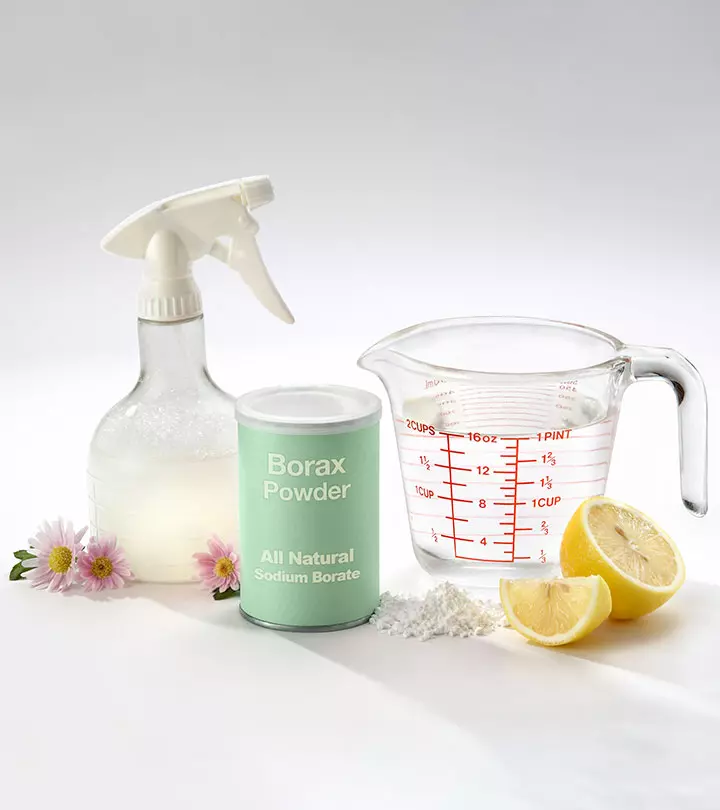
Image: Shutterstock
Borax is a natural mineral present in many skin care products. But is borax safe for your skin? The safety of borax is a never-ending debate. And before you use products with borax in it, you must know whether it is safe to use these products or not. In this article, we examine the pros and cons of using borax for skin and help you determine if you should use products with borax or not. But, before we dive into the safety concerns regarding borax, let us read what borax is. Scroll down to find out the potential risks associated with the ingredient, how to use it, and more.
In This Article
What Is Borax?
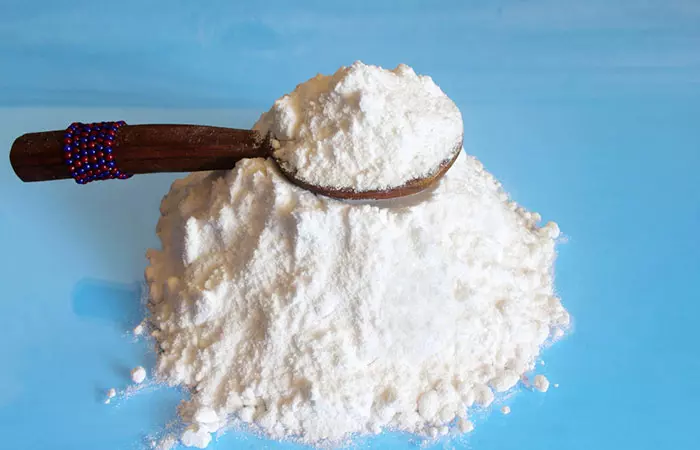
Borax is a salt of boric acid, but its chemical composition is entirely different from that of an acid. Scientifically called sodium tetraborate, borax is mined from the depths of the earth and also found as deposits in lake beds and mountain runoffs.
The use of borax by humans dates back to 4000 years ago when it was first discovered in Persia. It has a white chalk-like appearance, and its powdered form consists of tiny colorless crystals.
 Trivia
TriviaThe most commercially important deposits of Borax are found in Turkey, Boron, and Searles Lake.
So now, we get to the important question.
Key Takeaways
- Borax is added as a natural exfoliant to many skin care products.
- It helps remove excess grease and maintains the natural pH level of skin.
- Borax, in some cases, may lead to skin irritation, especially on broken skin.
- Borax inhalation or long overuse may cause liver cancer and skin peeling.
- Do a patch test or consult an expert before using it.
How Does Borax Work?
Borax powder is used in skincare products to help balance the skin’s pH and control excess oil production. It, often used in its hydrated form, releases tiny amounts of hydrogen peroxide when added to water. Hydrogen peroxide is known for its antiseptic properties that fight skin infections(1). This helps prevent the growth of microbes on and within the skin. In cosmetics like lotions and creams, borax loosens the water-based part of the products so it blends well with the oil-based components. This emulsifying action also extends the product’s shelf life by reducing the surface tension of water-based ingredients. Essentially, borax serves as a preservative, emulsifier, water softener, cleanser, particle suspender, and buffering agent in cosmetic products due to its relatively high pH value of 9.5.

Liliya, a lifestyle content creator, used a remedy prepared with borax to get rid of demodex infestation, and to her surprise, it worked. She said, “I am so so fortunate to have found it to treat my demodex. As you can see, my face is perfectly clear and I’m no longer itching in the middle of the night (i).”
In the next section, let us discuss how safe it is for the skin.
Is Borax Safe For Your Skin?
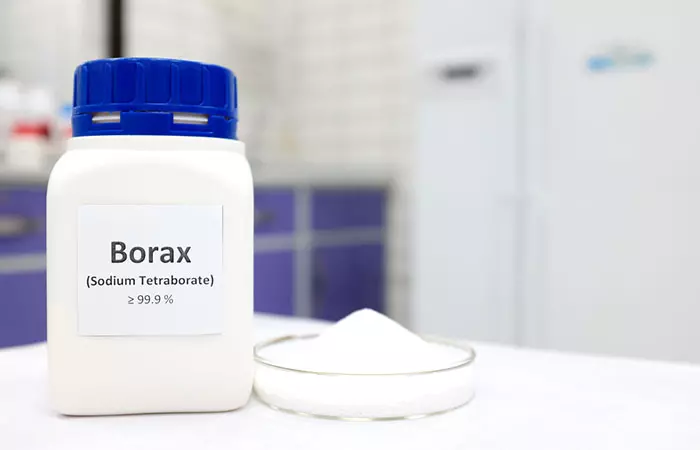
Borax, combined with wax, is used in many cosmetic products like creams, gels, and lotions. It is famously used in hand soaps to help wash off the oil or grease from the hands.
Borax is alkaline in nature, making it a perfect ingredient in cleansers and toners. But this same property can cause skin irritation and rashes (2).
Exfoliating borax soaps eradicate skin bacteria and remove dead skin cells and excess oil (3). Borax is a natural mineral; it is even used as an ingredient in many homemade remedies for cleansing and moisturization .
Since borax is also a component in many laundry detergents, cleaning solutions, fertilizers, and other chemical products for industrial hygiene purposes, many are skeptical of its use on the skin. And as it is difficult to quantify the limit, it is best to avoid borax on the skin. This is especially true for those with sensitive skin as they would be more vulnerable to skin infections.
But if your skin is not so sensitive, you can go ahead and use borax – but with extreme caution. Make sure you rinse your skin thoroughly after each use.
Borax does not penetrate deep into the skin, and this makes it safe to use in limited quantities. This property also makes it an easy cure for skin problems.
And talking about its use, how do we use borax on the skin?
How To Use Borax For Your Skin
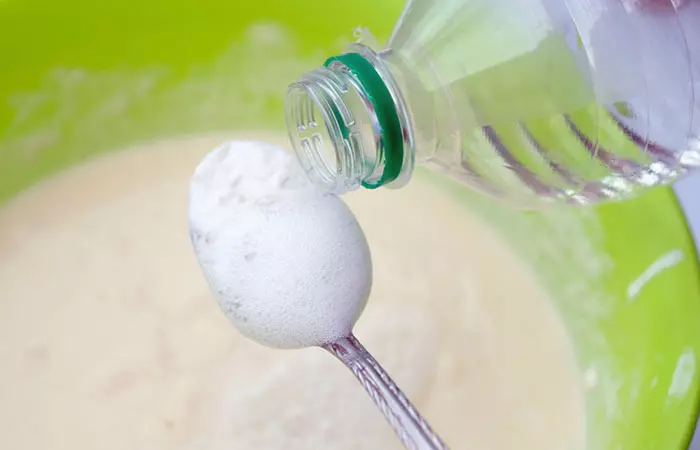
Borax is used in soaps, creams, lotions, and gels. If you are keen to use it on your skin, you can try skin care products that contain borax as an ingredient.
Borax can treat acne. You can mix 1/2 teaspoon of borax powder with 1 teaspoon of glycerine, 1 cup of distilled water, and 1/2 teaspoon of camphor lotion to form a paste. Apply this paste to the problem areas.
Keep the mask on until it dries and rinse your face with warm water. Splash cold water over your face and pat dry with a clean towel. The mask works well to maintain the pH balance of your skin and absorbs the excess oil.
Remember, while borax has been used in some skincare products for its cleansing and exfoliating properties, exercise caution and consult with a dermatologist before incorporating it into your skincare routine.
Borax can be irritating to the skin and eyes, and prolonged exposure may lead to health issues. So, before applying any borax solution to a larger area of skin, perform a patch test on a small, inconspicuous area. This will help you identify any potential allergic reactions or skin sensitivities.
All good – but where can you get borax?
Where Can I Buy Borax?
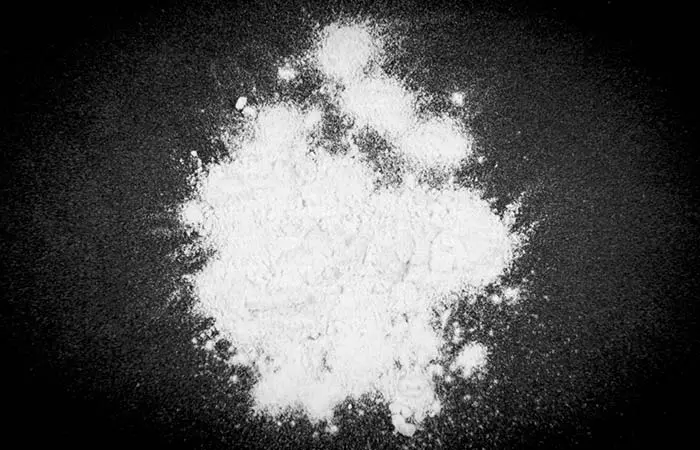
Natural borax (in the powdered form) is readily available in supermarkets and online shopping websites. Some famous brands that sell borax are 20 Mule Team Borax, Hovex, and Bare Essentials. Keep in mind to never pick borax that has additional ingredients or fragrance. And there’s something else.
What Should You Keep In Mind Before Using Borax On The Skin?
Like we discussed – though we don’t recommend using borax on skin, you can use it in limited quantities if you are keen.
But remember that the toxins in borax have adverse effects on the reproductive health and wellness of men – borax can decrease male sperm count.
Pregnant women must avoid borax at all costs as it may lead to congenital disabilities. Exposure to borax during pregnancy might lead to abnormal fetal development and brain abnormalities in the child.
 Quick Tip
Quick TipThe ingredients list of a product may mention borax as sodium borate, sodium tetraborate, or disodium tetraborate.
But wait, what determines if borax can be toxic or not?
Is Borax Toxic Or Not?
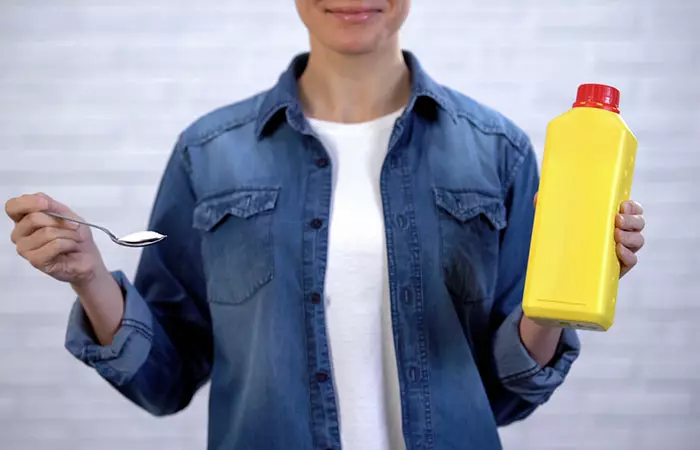
Similar to essential oils, how you use borax, its quantity, and your skin sensitivity matter in determining its toxicity. If you choose to use borax on the skin, you must do so carefully to avoid allergic reactions.
Studies have proven that exposure (by inhaling and ingesting) to borax for a long period can lead to liver cancer, liver failure, and skin peeling. Borax can also disrupt hormone balance when used in high doses.
As the skin can absorb borax into the system, make sure you do not apply more than the normal dosage.
Infographic: Is Borax Safe?
The safety of borax is always in question. Is it harsh on the skin? Can it cause serious skin issues? However, borax is commonly used in many skin care products. It can be used on normal, dry, combination, and oily skin types.
Check out the infographic below to understand why borax is considered safe to use and a few cautionary tips.
Borax, also known as sodium tetraborate, is a mineral salt commonly used in cosmetics and personal care products to remove excess oil, dirt, dead skin, and bacteria. You can mix borax with glycerin, camphor, and distilled water to make a paste and apply it to your face. Exercise caution when applying borax as excess borax may lead to skin irritation. Pregnant women and lactating mothers should avoid using borax. If you are not sure about using borax, consult your dermatologist to know if borax is safe for your skin or not.
Frequently Asked Questions
How often can I use borax on my skin?
Use borax on your skin only when it is necessary, and you have no other alternative. As sparsely as possible.
Are borax and boric acid the same?
No, they are not. Borax is a salt derived from boric acid, and chemically, both are entirely different.
Is borax the same as baking soda?
No, borax and baking soda are two different salts, though both are used as household cleaning agents. Borax, or sodium tetraborate, has a pH of 9.5, whereas baking soda (also known as sodium bicarbonate) has a pH of 8. The former is the more alkaline of the two. Borax helps eradicate bacteria and removes deep-seated impurities from the skin. On the other hand, using baking soda for skin can help soothe irritation and treat mild acne and fungal infections and make skin clearer.
What is the role of borax in cold cream?
Borax is used as an emulsifier and to stabilize the mixture of ingredients in cold creams. Hence, such creams are fluffier and whiter than those without borax.
What does borax do in bath bombs?
Borax is used to extend the shelf life of bath bombs. It also creates a stable formulation that ensures the ingredients don’t separate.
Illustration: Is Borax Safe For Your Skin?
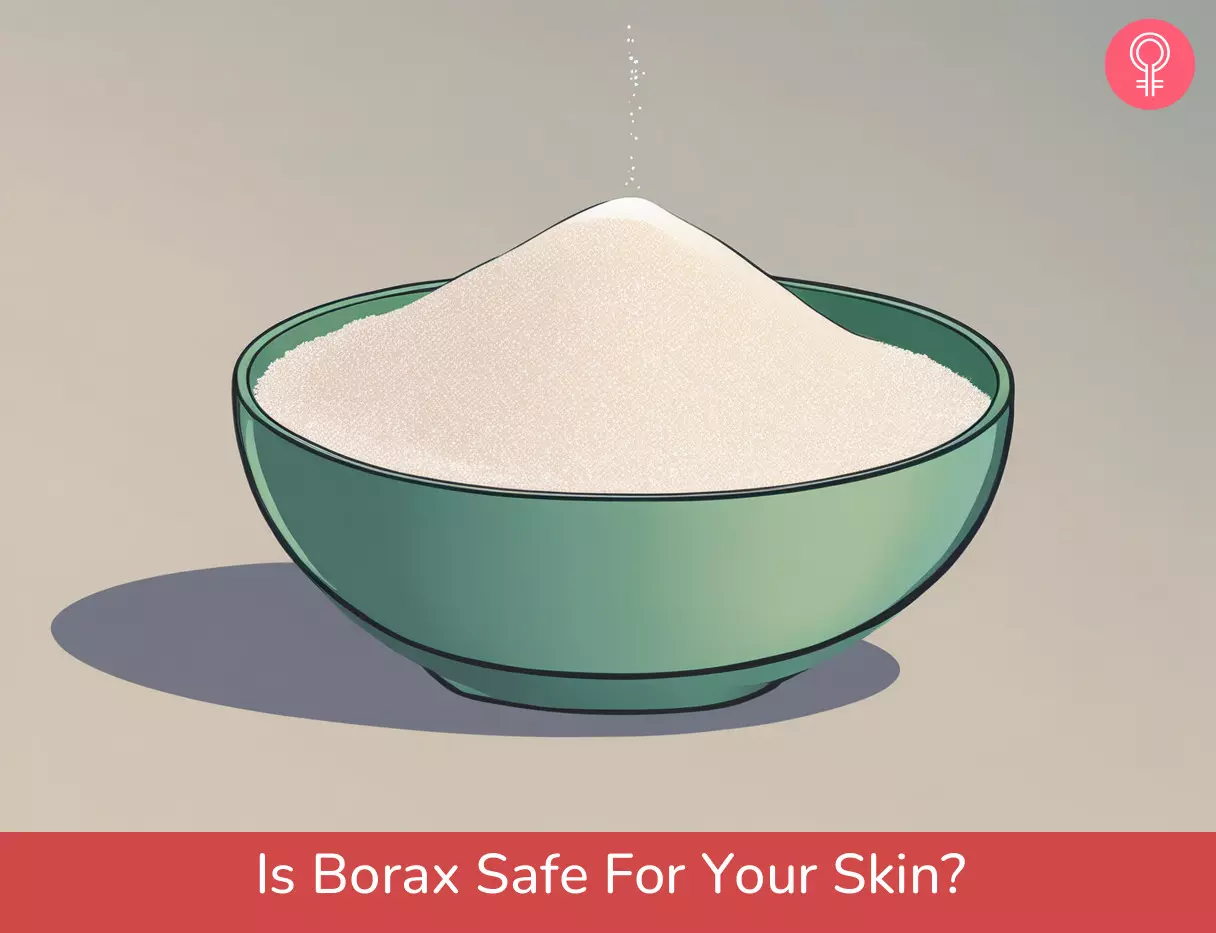
Image: Stable Diffusion/StyleCraze Design Team
Bid farewell to the demodex infestation with borax. Follow the step-by-step tutorial in this video to eliminate face mites and reclaim your skin’s health once and for all.
Personal Experience: Source
StyleCraze's articles are interwoven with authentic personal narratives that provide depth and resonance to our content. Below are the sources of the personal accounts referenced in this article.
i. How To Make Ted’s Borax Solutionhttps://www.youtube.com/watch?v=9k29JtNc9ns
References
Articles on StyleCraze are backed by verified information from peer-reviewed and academic research papers, reputed organizations, research institutions, and medical associations to ensure accuracy and relevance. Read our editorial policy to learn more.
- Hydrogen peroxide: a potential wound therapeutic target?
https://www.ncbi.nlm.nih.gov/pmc/articles/PMC5768111/ - Effect of borax on immune cell proliferation and sister chromatid exchange in human chromosomes
https://www.ncbi.nlm.nih.gov/pmc/articles/PMC2776007/ - Final Report on the Safety Assessment of Sodium Borate and Boric Acid
https://journals.sagepub.com/doi/pdf/10.3109/10915818309142004
Read full bio of Dr. Priya Gill
Read full bio of Jyotsana Rao
Read full bio of Ramona Sinha
Read full bio of Monomita Chakraborty





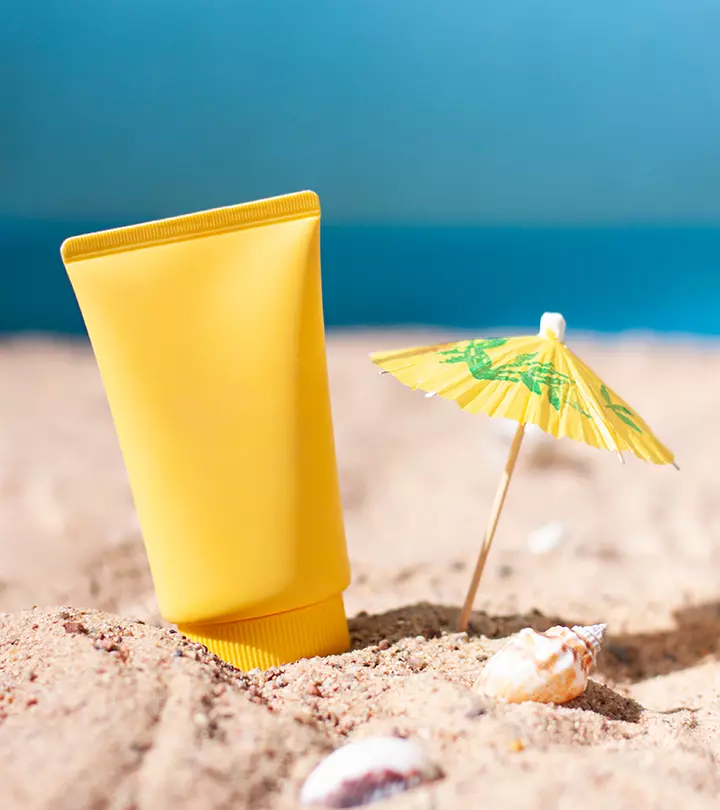
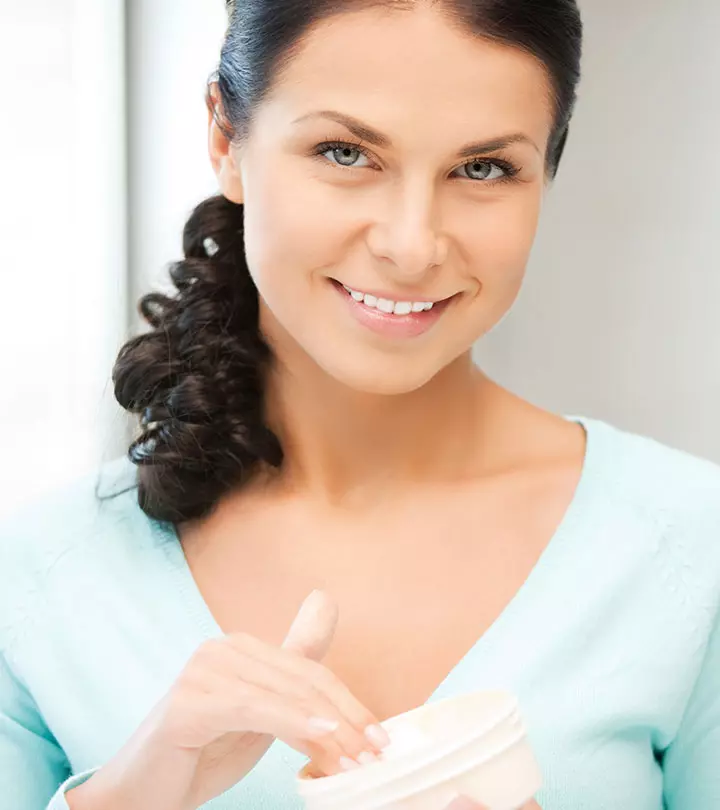
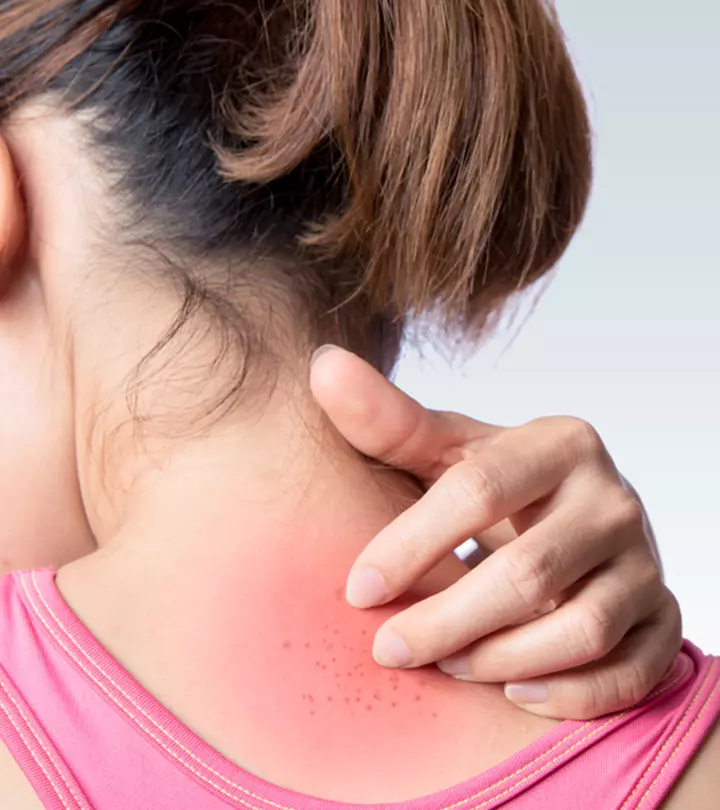

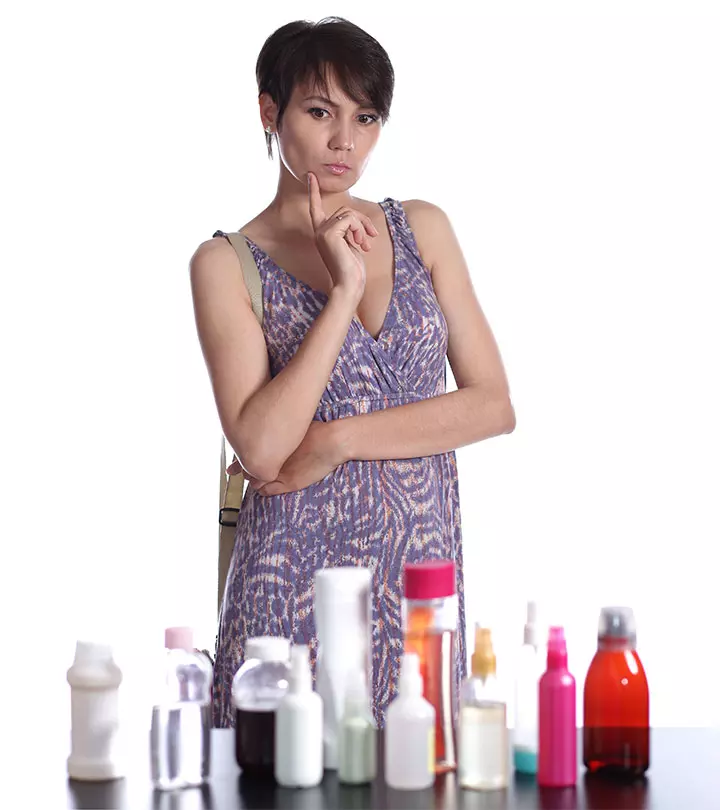



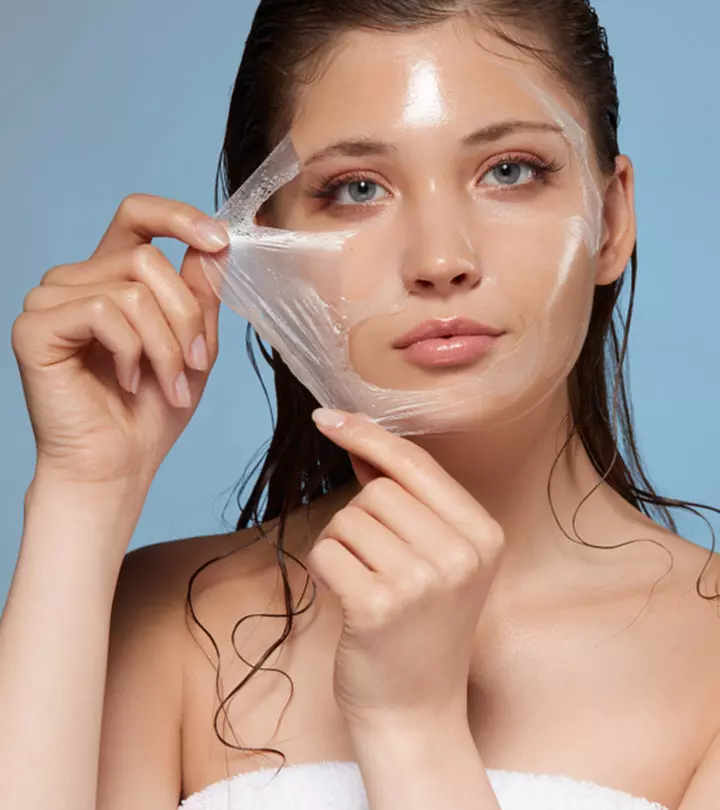
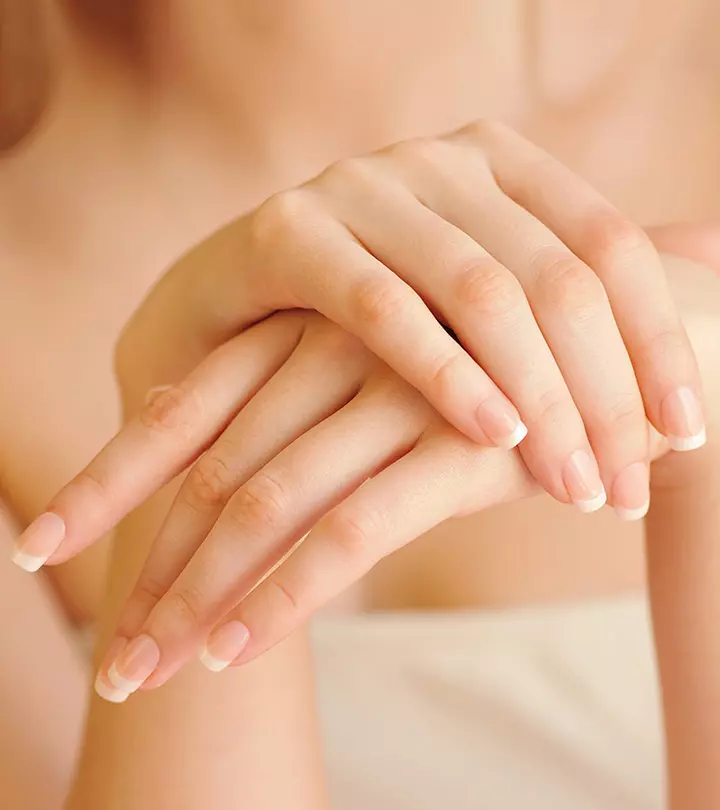
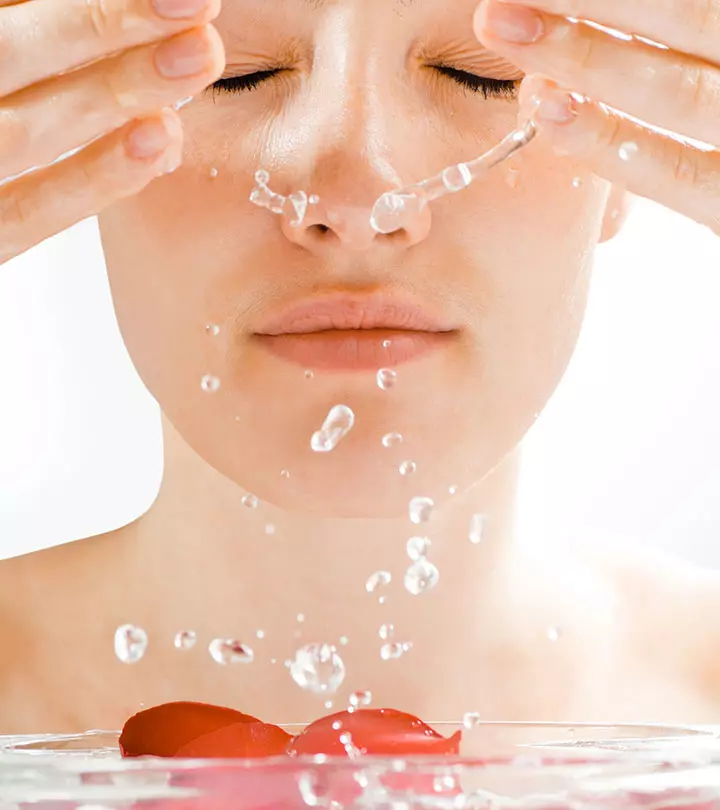

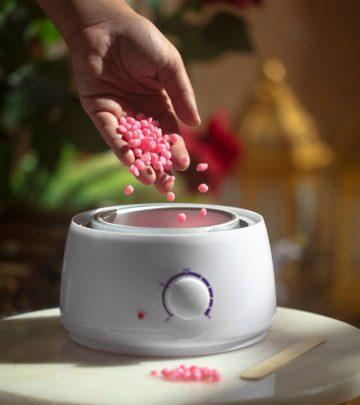


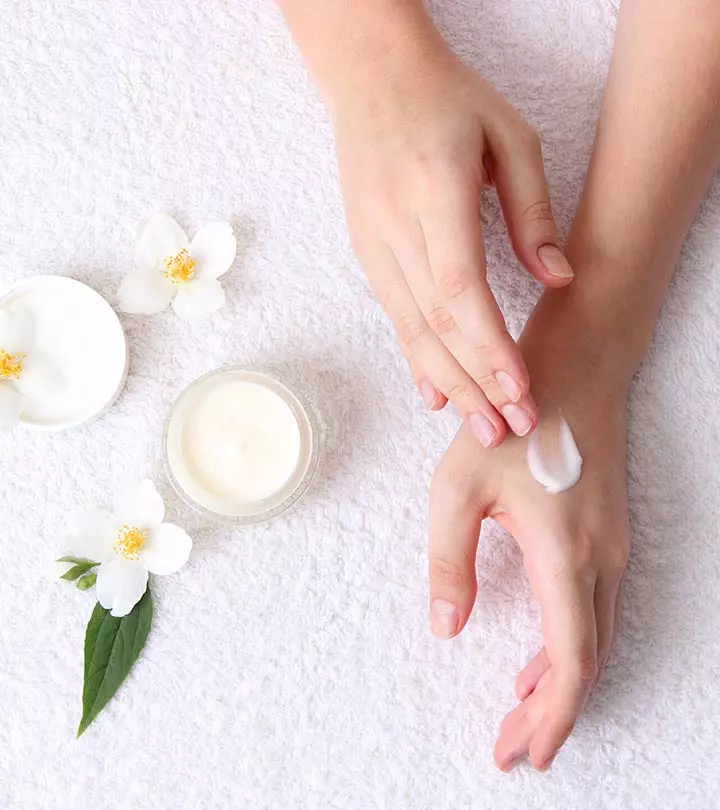
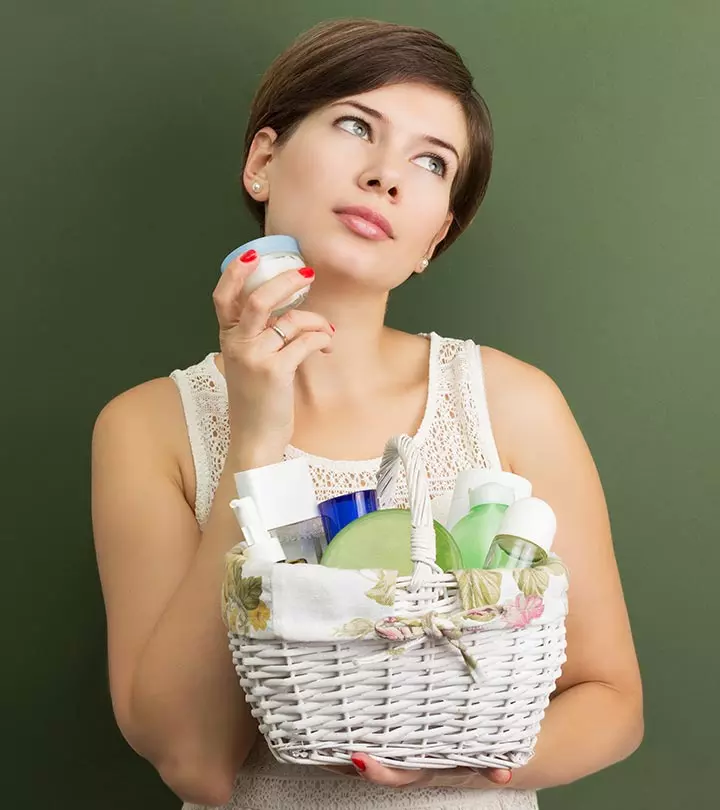

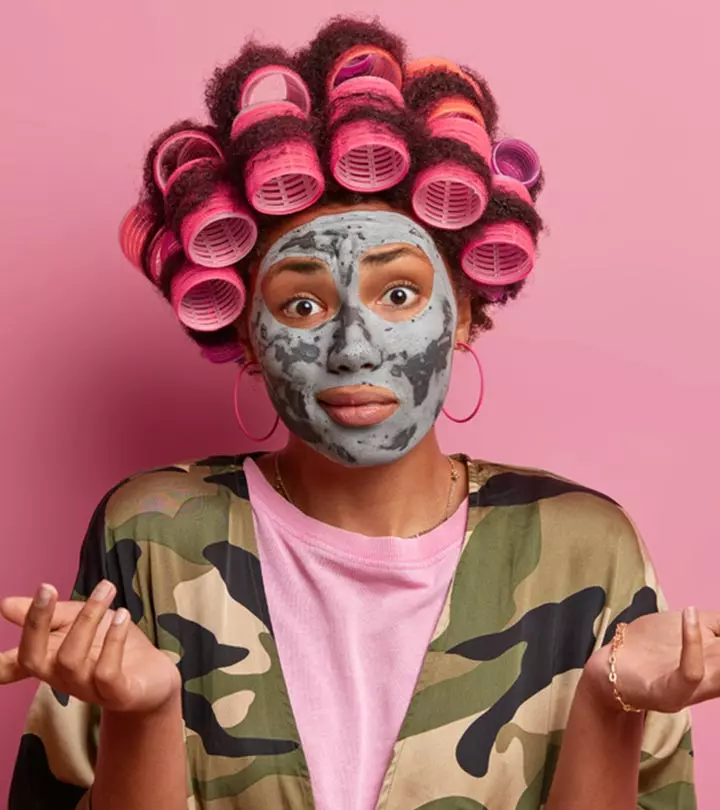

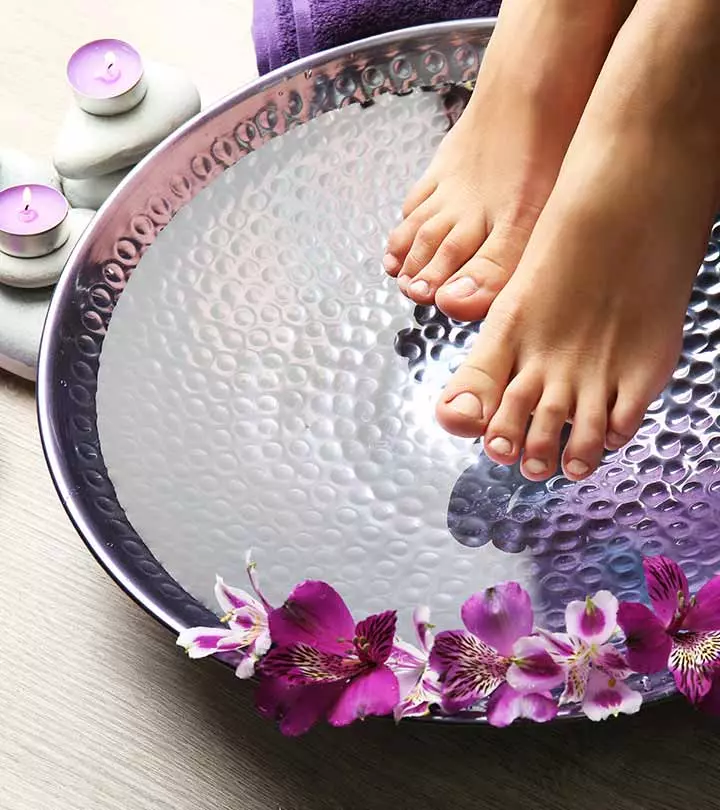
Community Experiences
Join the conversation and become a part of our empowering community! Share your stories, experiences, and insights to connect with other beauty, lifestyle, and health enthusiasts.